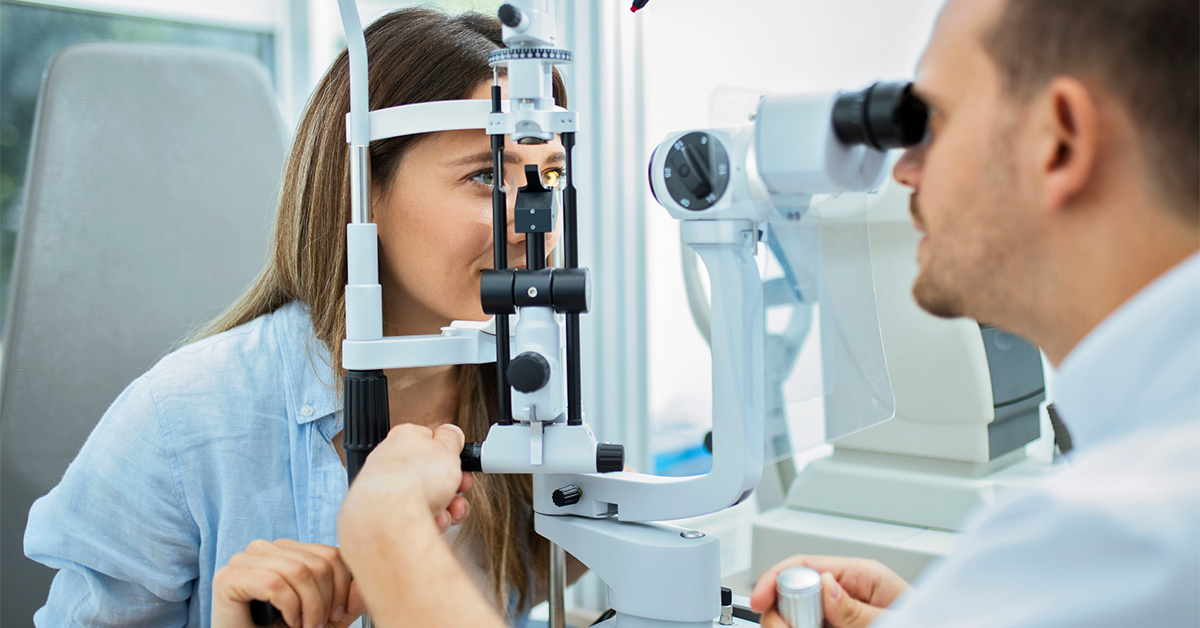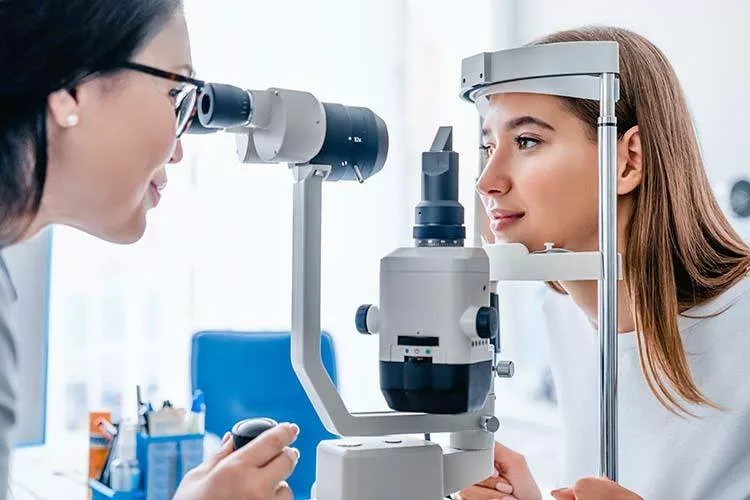Why Picking an Eye Doctor Optometrist is Necessary for Your Eyes
Why Picking an Eye Doctor Optometrist is Necessary for Your Eyes
Blog Article
Recognizing the Comprehensive Role of an Optometrist in Modern Eye Treatment
In the advancing landscape of healthcare, the scope of an optometrist's function has actually considerably expanded, prolonging well past the boundaries of typical vision improvement. With advancements in technology and an enhancing emphasis on precautionary care, optometrists are indispensable in detecting and managing persistent eye problems, while additionally taking part in very early condition discovery. Their experience in advanced diagnostic techniques such as optical coherence tomography is indispensable. However exactly how do these obligations intersect with their function in advertising total eye wellness, and what does this mean for individual results in a collective healthcare environment?
Expanded Range of Method
Recently, the function of eye doctors has actually evolved dramatically, with many experts currently accepting an increased scope of technique that expands beyond standard eye evaluations. This advancement reflects the growing acknowledgment of eye doctors as primary health care providers in the area of eye treatment. Their duties now include a variety of services, including recommending medicines for eye problems, managing chronic eye diseases, and doing small surgeries. This change has actually been driven by innovations in optometric education, enhanced medical training, and the boosting demand for thorough eye treatment services, specifically in underserved locations.
Additionally, eye doctors are now more involved in collaborative treatment, functioning carefully with ophthalmologists, health care doctors, and other health care professionals to ensure all natural individual care. This interprofessional collaboration is essential in managing intricate situations that require a multidisciplinary approach. In addition, optometrists are playing a crucial function in public health and wellness initiatives, such as vision screenings and eye health education and learning, targeted at enhancing community health end results.
The broadened scope of technique for eye doctors not just enhances their capability to provide comprehensive treatment but additionally deals with the expanding demand for accessible and efficient eye treatment services, adding to total health care improvements.
Very Early Illness Discovery
Early detection of eye conditions is significantly ending up being a focal point in the increased role of optometrists. As key eye treatment carriers, optometrists are distinctively placed to identify early indicators of eye conditions such as glaucoma, macular degeneration, diabetic person retinopathy, and cataracts. This crucial role is vital, as very early medical diagnosis can considerably improve the monitoring and diagnosis of these conditions, potentially stopping vision loss and enhancing patient results.
Eye doctors employ comprehensive eye examinations to detect refined changes in vision and eye wellness. The capacity to acknowledge early indicators of systemic wellness problems, such as high blood pressure and diabetes mellitus, through ocular signs better highlights the relevance of regular eye exams.
In addition, optometrists play an important duty in person education and learning, highlighting the importance of regular eye evaluations as part of general health care. By fostering an aggressive technique to eye care, eye doctors add substantially to public health and wellness, ensuring conditions are caught and taken care of efficiently before they can progress.
Advanced Diagnostic Strategies
Advanced diagnostic strategies have actually transformed the method of optometry, making it possible for practitioners to find and monitor ocular illness with unmatched accuracy. Technologies such as optical comprehensibility tomography (OCT) provide high-resolution, cross-sectional images of the retina, assisting in very early discovery of problems like glaucoma and macular degeneration.
Another important innovation is digital retinal imaging, which captures detailed sights of the retina making use of high-def cameras. This innovation is vital in recognizing adjustments in retinal framework gradually, therefore assisting in the monitoring of problems like diabetic person retinopathy. Aesthetic area testing, enhanced by computer-aided systems, enables accurate mapping of a client's visual field, vital in identifying and tracking glaucoma progression.
Corneal topography, another notable analysis device, produces topographic maps of the cornea's surface area. This is specifically valuable in suitable get in touch with lenses and preparing refractive surgical procedure. These sophisticated diagnostic strategies collectively enable optometrists to give positive, targeted care, ensuring much better person results and enhancing their crucial duty in eye health monitoring.
Managing Persistent Eye Conditions
Managing persistent eye problems is a keystone of optometric treatment that calls for a detailed understanding of various eye illness and their lasting visit our website ramifications. Eye doctors play a pivotal function in monitoring, diagnosing, and handling problems such as glaucoma, diabetic retinopathy, and age-related macular degeneration. These problems, if left without treatment, can result in substantial visual problems or blindness, highlighting the crucial importance of continuous treatment and management.
Eye doctors use a series of analysis devices, consisting of optical coherence tomography (OCT), visual area testing, and fundus photography, company website to analyze the development of these persistent conditions. By closely monitoring modifications in ocular health and wellness, eye doctors can adjust therapy strategies to alleviate disease progression. This may entail recommending medications, advising lifestyle alterations, or collaborating with ophthalmologists for surgical treatments when required.

Function in Preventive Care
Precautionary care is a fundamental facet of optometry that focuses on keeping eye health and wellness and protecting against the onset of ocular conditions. Optometrists play a vital duty in very early detection and avoidance, using regular eye examinations to recognize risk elements and subtle changes in ocular health. Opticore Optometry. These evaluations are not merely regarding vision adjustment Check Out Your URL yet incorporate an extensive assessment of eye features and structures, making it possible for the identification of problems such as glaucoma, cataracts, and macular deterioration at a very early stage
Along with diagnostics, optometrists enlighten clients on way of living options that advertise eye health and wellness, such as correct nutrition, UV defense, and the significance of normal eye check-ups. They suggest on the appropriate use digital gadgets to avoid electronic eye pressure, a growing problem in the digital age. Eye doctors additionally offer advice on protective eyeglasses for entertainment and work tasks, mitigating the danger of injury.
Preventative eye care extends to systemic health problems that materialize in the eyes, such as diabetes mellitus and hypertension. By working together with various other medical care professionals, eye doctors contribute to holistic individual treatment, stressing the interconnectedness of ocular and systemic health. This positive strategy is important in guarding visual acuity and overall wellness.
Final Thought
Optometrists now occupy an essential function in modern-day eye treatment, identified by an increased extent that consists of diagnosing and managing chronic eye conditions, prescribing medications, and carrying out minor surgical procedures (Opticore Optometry). Their proficiency in very early disease detection is enhanced by advanced diagnostic techniques such as optical coherence tomography and electronic retinal imaging. By emphasizing preventative treatment and individual education and learning, eye doctors add dramatically to general eye health and wellness, working together with other healthcare specialists to ensure efficient and extensive client outcomes

In addition to diagnostics, eye doctors inform patients on way of life choices that advertise eye health, such as appropriate nutrition, UV protection, and the relevance of regular eye exams.Preventive eye treatment extends to systemic health and wellness concerns that materialize in the eyes, such as diabetes and high blood pressure.Optometrists now occupy a crucial role in modern-day eye treatment, identified by an increased scope that includes identifying and handling persistent eye conditions, recommending drugs, and executing small surgical procedures.
Report this page